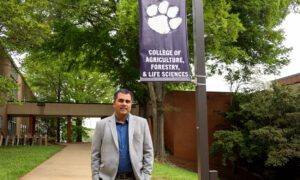Sustainability at Clemson University
What is sustainability?
In the 1987 Brundlant report, Our Common Future, sustainable development was defined as "development that meets the needs of the present without compromising the ability of the future generations to meet their own needs." Our understanding of sustainability is apparent in the way we run our facilities, teach our students, carry out research and interact with our community. Sustainability is a value of the Clemson family and just another way that we are #AllIn.











